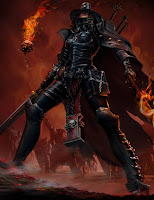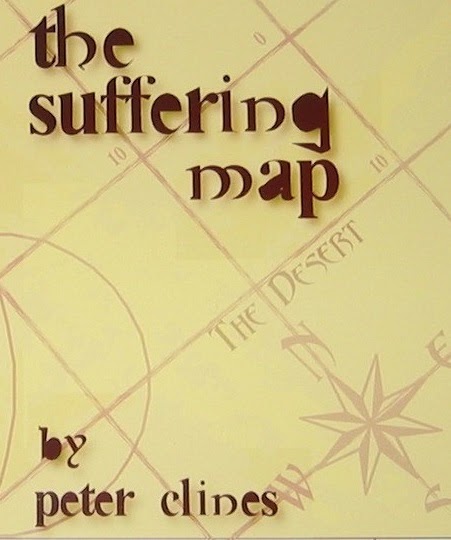Oh, get your mind out of the gutter…
Well, it’s been a brutal week on a couple levels. And it’s the holiday season, I think we can all use a little cheering up, don’t you? So let’s talk about some good stuff.
And I’ll start by talking about what happens in the grim, dark future…
As I’ve mentioned once or thrice here, I’m a bit of a geek. One of my biggest geekery hobbies by far is Warhammer 40K. If you’re not familiar with the game, it takes place in the distant future (around the year 40,000—surprise!) where mankind has risen, fallen, risen, fallen again, risen one last time… and is now pretty much on the way out. Not immediately. Not in our lifetime. But the glory days are gone and the Empire of Man is well past middle aged and fighting to hang on to its driver’s license, if you get my drift.
When my lovely lady and I first started hanging out, she expressed interest in this silly toy soldiers game, and—being a geek—I immediately started telling her about the different armies and the massive back story and setting of the game. And after a few hours of listening to stories of the waning Imperium, she finally laughed and said, “Why would anyone want to live in this world? I’d just kill myself.”
Which is a fair point. To be honest, I hadn’t been fond of some of the earlier stories myself. They were just bleak as hell. You may have heard the term “grimdark” used for some fiction. It actually comes from this game. That phrase I used up above, “in the grim, dark future”—that’s part of Warhammer 40K’s tagline.
Of course, it’s not just the little toy soldiers. The grimdark label ends up on a lot of things these days. Urban fantasy stories. Post-apocalypse stories. Superhero stories. And this isn’t just about genre books. People try to do “serious” books all the time that are nothing but sadness, misery, and death. There’s a common belief that making things gritty and dark, and edgy automatically makes them more “mature.” I’ve mentioned once or thrice before how some writers think having bleak, depressing endings is artistic because it’s more “real.”
I’m sure you can think of plenty of examples of this.
The catch is, this gritifying of stories rarely works. Usually making something grim and dark just makes it… well, grim and dark. That’s it. Seriously, check out bestselling books or big box-office movies. The popular stuff almost always leans toward lighter and fun. A lot of it has (gasp) happy endings.
As another famous sci-fi icon once said, it’s not enough to live. You have to have something to live for.
Again, why would anyone want to live in my fictional world? Seriously. Take a moment and think about it.
What saved the world of Warhammer 40K for me was the writing of folks like Dan Abnettand Sandy Mitchell. They added a human element. They told stories that involved jokes and drinking buddies and love and people just enjoying their lives. Heck, Abnett had a whole subplot in one book about a toymaker saving his business by building wind-up robots.
I’ve gotten a lot of praise for my Ex-Heroes series. It’s a series that’s lasted through five book so far, and across six years. Long after when many people said zombies were… well, dead. And I believe a lot of that praise and success comes from one simple thing.
I’ve gotten a lot of praise for my Ex-Heroes series. It’s a series that’s lasted through five book so far, and across six years. Long after when many people said zombies were… well, dead. And I believe a lot of that praise and success comes from one simple thing.
It’s a post-apocalyptic story, but it’s a hopeful one. Yeah, things are overall awful, but the characters are actively trying to make life better. They choose to move forward rather than do nothing or wallow in the past. They laugh. They love. They play games. They flirt. They celebrate. They have fun. A lot of their life is stressful and difficult, but it’s not every-minute-every-hour-every-day stressful and difficult.
 And it’s important to see these other moments because now we know why the characters are going on. We know what they’re living for. Deadpool is a story about hopelessness and terminal diseases and bloody revenge, but it’s also a story where Wade and Vanessa pretty much screw each other silly for an entire year before he proposes with a Voltron ring
And it’s important to see these other moments because now we know why the characters are going on. We know what they’re living for. Deadpool is a story about hopelessness and terminal diseases and bloody revenge, but it’s also a story where Wade and Vanessa pretty much screw each other silly for an entire year before he proposes with a Voltron ring Resist the urge to have nothing but grim darkness. Don’t be scared about having a good thing or three happen in your story. Don’t think you can’t have any light-hearted moments.
Believe in the happy ending!
On which note, I hope you all have a fantastic weekend and (if it’s your holiday) a very Happy Christmas.
Try and get a little writing in before then.









